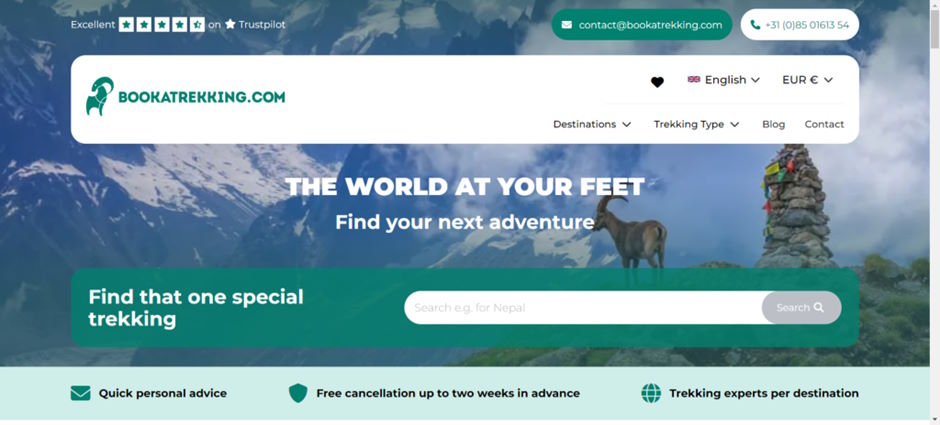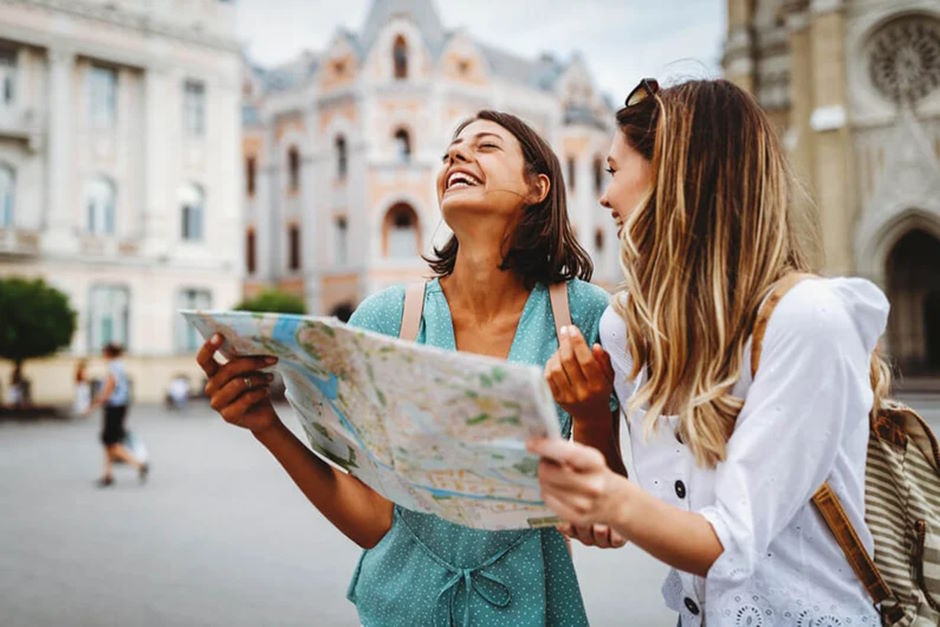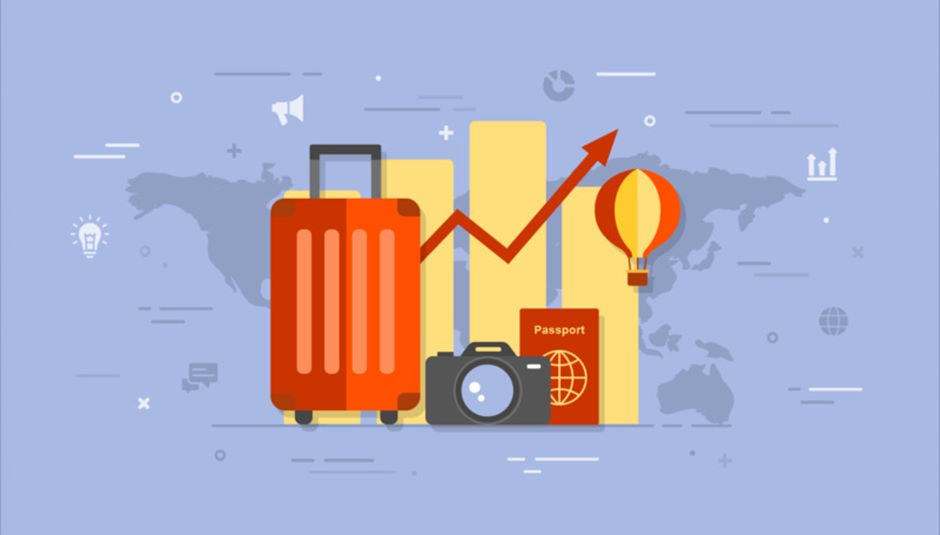From sponsored advertising to interactive billboards, new technologies mean that the average person sees more than 5,000 ads daily. And while data science, FinTech, artificial intelligence, machine learning, and virtual reality are hardly new concepts, they continue to bring new twists and turns to all areas of business, particularly marketing.
In a new article, we tell you what role technology is playing in tourism marketing and what the future holds for the world.
The Paradigm Shift: From Traditional to Digital
In the current scenario, digital marketing has surpassed traditional methods, allowing tourism brands to expand their reach exponentially. Digital campaigns that offer real-time interactions and personalization have redefined the relationship between businesses and travelers.
Digital media has changed the way travelers seek inspiration and plan their adventures. Social networks such as Instagram and travel blogs have become sources of ideas and exploration.
The quest for genuine and exciting experiences has led travel destinations to compete to capture travelers' imaginations with visually captivating content and authentic narratives.
Personalization: creating tailored experiences
Digital marketing has brought personalization to the center of tourism strategies. Companies use data analytics to deliver experiences and offers tailored to travelers' individual preferences. Personalization is not just a strategy but a way to connect emotionally with travelers and build strong relationships. These personalized connections increase customer satisfaction and influence booking decisions and long-term loyalty.
Bookatrekking - hiking company with a top-notch marketing approach

Bookatrekking is a trailblazer in the hiking industry by seamlessly integrating AI for personalization, data analytics for customer insights, and robust SEO and content marketing strategies. This innovative approach enhances the customer experience and solidifies Bookatrekking's position as a leader in the hiking market.
Bookatrekking harnesses the power of data analytics to gain valuable insights into customer behavior and market trends. The company comprehensively understands customer preferences, popular trekking destinations, and emerging travel patterns by analyzing user interactions on the website and social media platforms.
Through data-driven decision-making, Bookatrekking can refine its marketing strategies, optimize trekking package offerings, and identify untapped markets. Customer feedback is analyzed in real-time, allowing the company to promptly address concerns and continuously improve the overall customer experience.
Bookatrekking also excels in SEO and content marketing, ensuring that its online presence remains robust and authoritative. The main focus is on creating quality and engaging blog content. This way, they ensure potential clients have all the necessary information about the specific hiking routes. For example, if you want to go for a Tre Cime Hike, you can read their Tre Cime Hike article and get to know everything about it. It showcases its trekking destinations and provides valuable information for adventure enthusiasts.
Through comprehensive keyword research, Bookatrekking optimizes its website content and blog posts to rank prominently in search engine results. Engaging content attracts potential customers and establishes Bookatrekking as an authoritative voice in the trekking and adventure travel niche.
Successful digital marketing strategies in tourism

New technologies greatly change the tourism marketing domain.
Impactful visual content: the key to awakening traveler emotions
In a world saturated with information, visual content is essential to capture travelers' attention. Images and videos instantly convey the essence of a destination, awakening emotions, and travel angels. Visual platforms such as Instagram and YouTube offer virtual windows into far-flung destinations and exciting adventures.
Visual content is the vehicle that transports travelers to remote places and extraordinary experiences.
Authenticity is the key to creating impactful visual content. Images that reflect the true essence of a place and travelers' real experiences generate a genuine connection.
Every image tells a story, and that story resonates with travelers who are looking for authenticity in their adventures.
Social media interaction: building passionate traveler communities
Social networks are spaces where tourism brands can establish authentic connections with travelers. Through two-way interactions, companies can create an authentic and engaged voice.
Brands that come across as real and human on social networks can build meaningful relationships with travelers. Humanizing the brand through behind-the-scenes content and personal narratives creates a closer relationship with followers.
Social media has also given rise to influencer marketing. Collaborations with digital influencers make reaching wider and more trusted audiences possible.
Influencers bring authenticity and trustworthiness to brands, as their audience trusts their recommendations. These strategic collaborations allow brands to reach new audiences credibly.
Mobile optimization: accessibility and convenience in the palm of your hand
Optimizing for mobile devices is essential in a world where travelers research and book on the go.
Mobile optimization goes beyond aesthetics; it's about delivering a seamless and comfortable experience for users. Tourism companies must ensure that their websites and apps are adapted to smaller screens and offer intuitive navigation.
Geolocation is a key feature of mobile optimization. Brands can offer relevant information based on the user's location, making it easier to explore nearby destinations and activities.
Geolocation transforms the way travelers discover places and experiences, providing personalized information in real time.

Future of tourism marketing: innovation and challenges
As tourism marketing looks to the future, it faces exciting opportunities and crucial challenges. Artificial intelligence is emerging as a tool for personalization, allowing companies to create tailored trips and anticipate travelers' needs.
AI has the potential to transform the way travel is planned and experienced, providing travelers with a more personalized and efficient experience.
However, technological innovation also raises ethical concerns and privacy challenges.
Companies must balance data collection with traveler privacy, establishing clear and transparent guidelines for handling information. Customer trust is essential in a constantly evolving digital environment.
Conclusion
We find a symphony of possibilities in the fabric of digital marketing in tourism promotion. From the transformation of the traditional to personalization and emerging technology, we have explored how this revolution has changed the foundations of the travel industry. Digital marketing is no longer optional but vital for building authentic connections with modern travelers.









